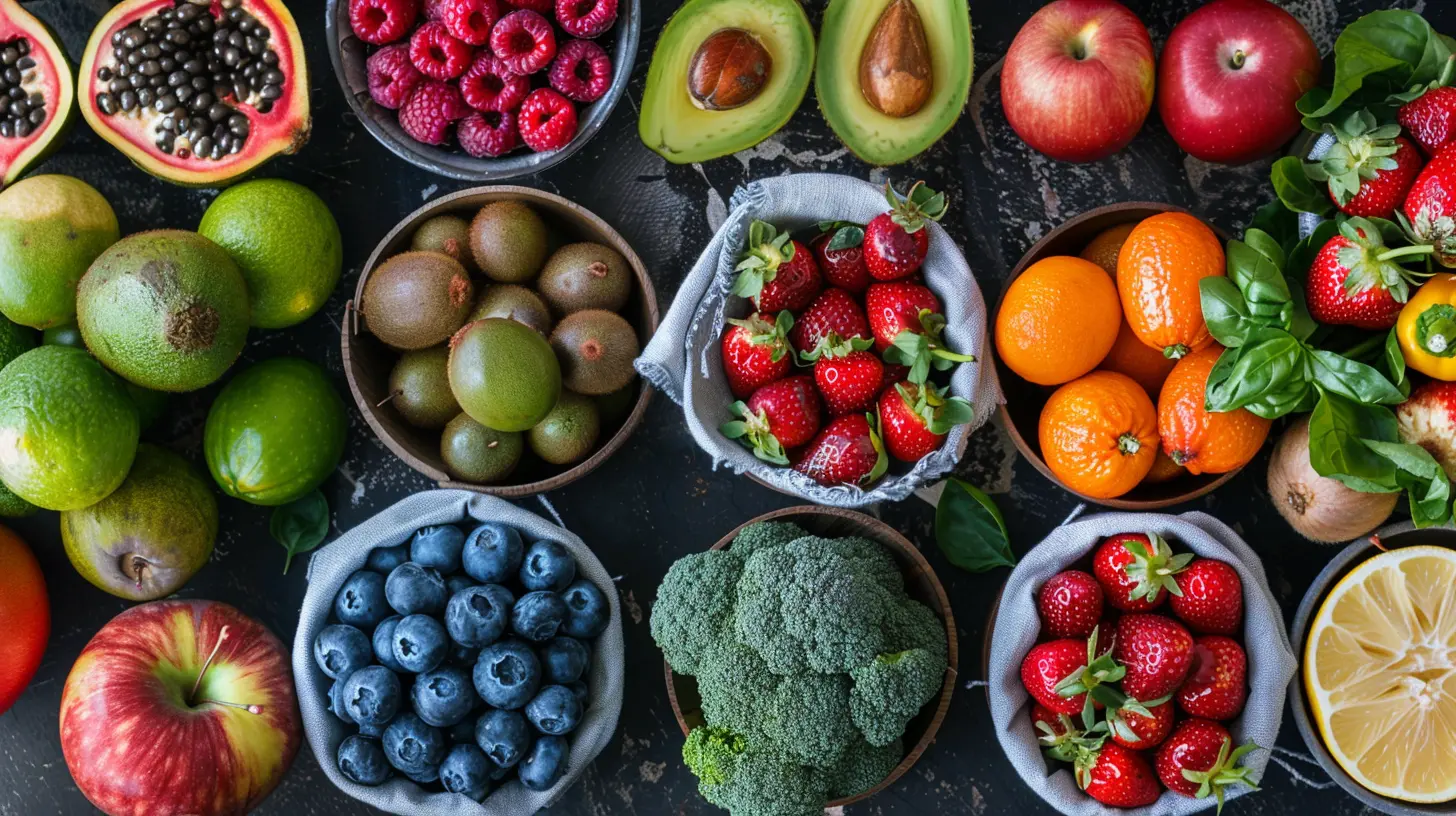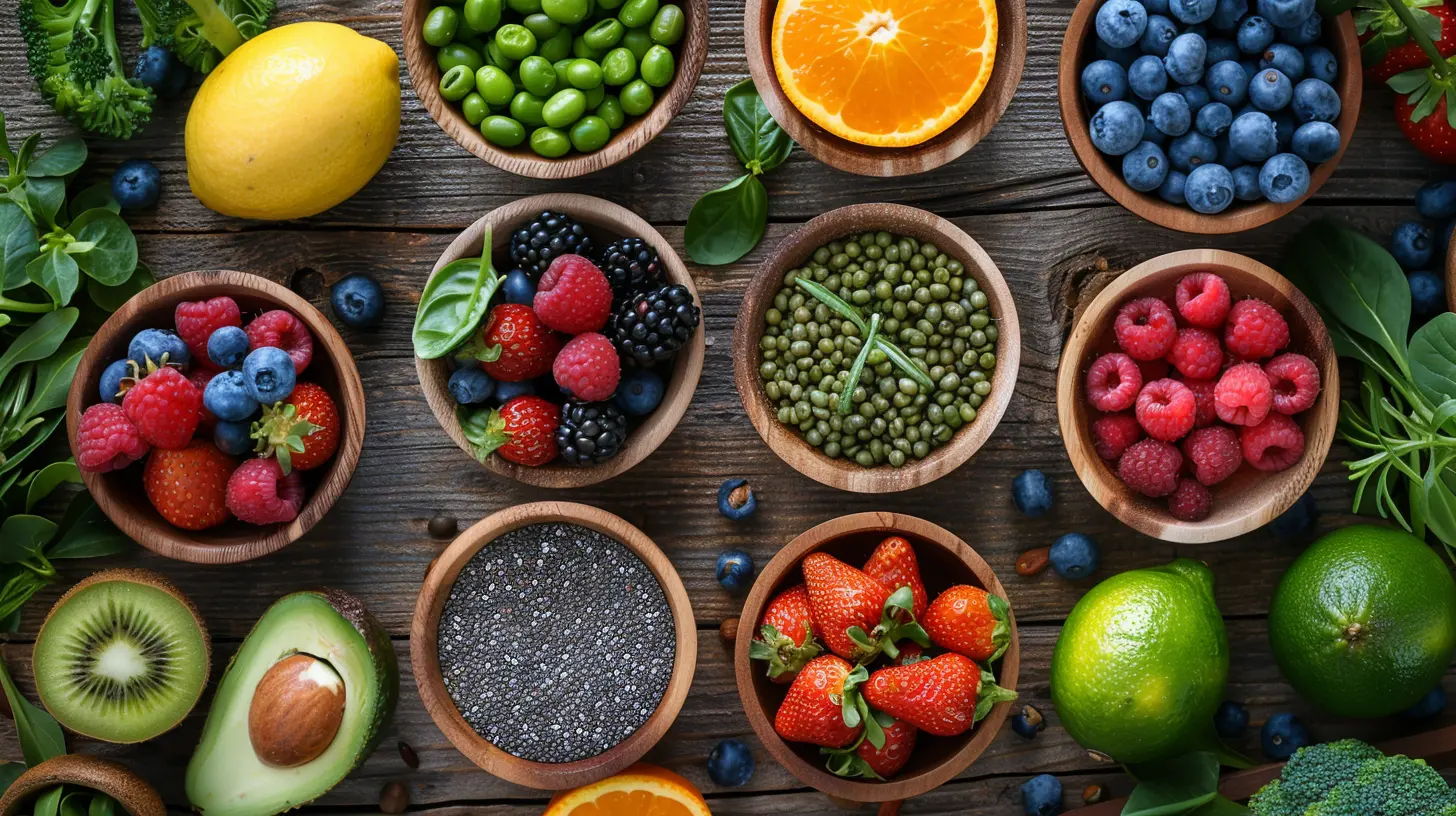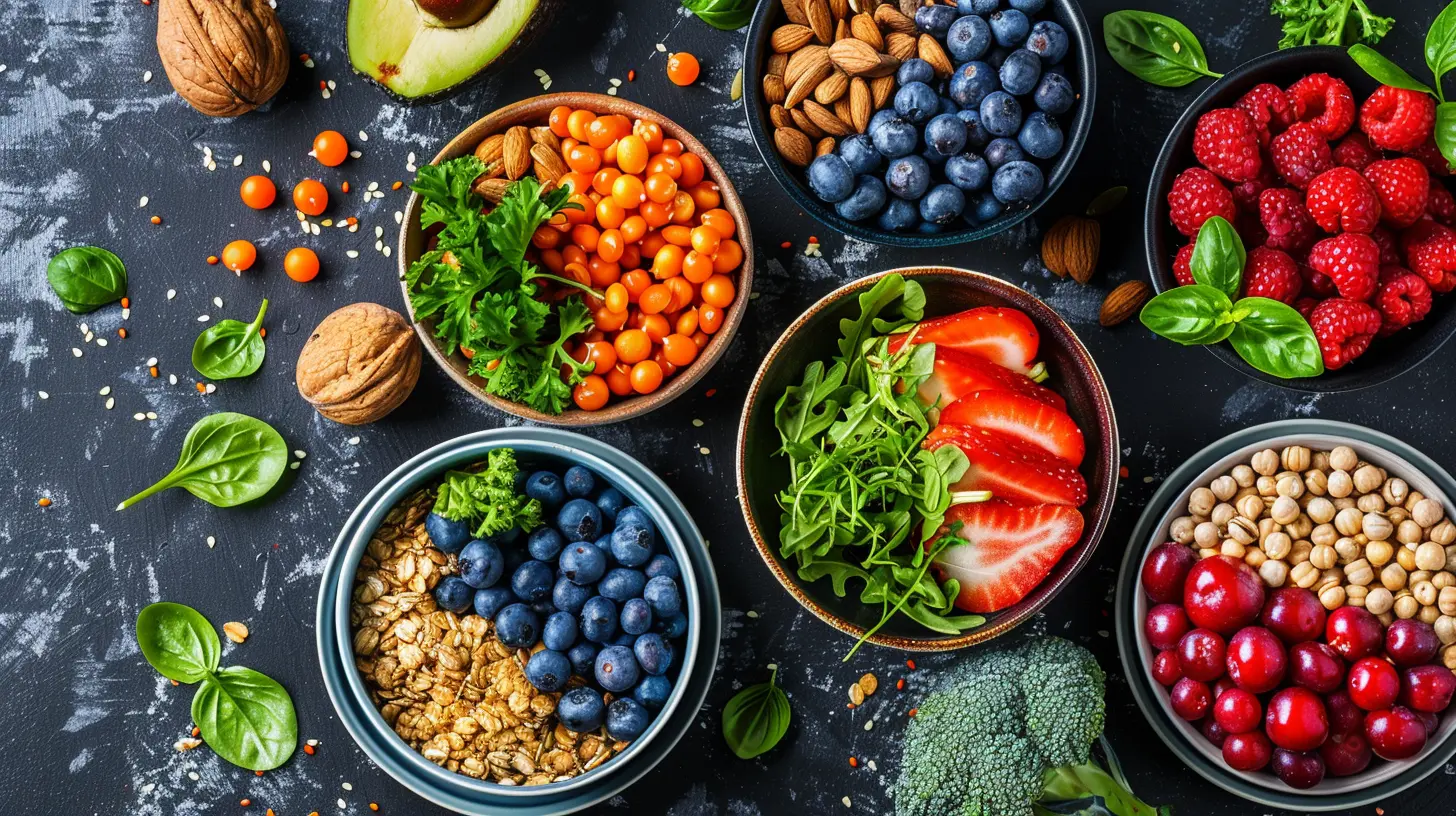The Benefits of Adding More Whole Foods to Your Diet
9 October 2025
In a world filled with processed snacks, fast food, and sugary drinks, making the switch to whole foods can be a game-changer for your health. But what exactly are whole foods, and why should you prioritize them in your diet? If you're looking to boost your energy, improve digestion, and support overall well-being, you’re in the right place. Let’s dive into the benefits of incorporating more whole foods into your daily meals.
What Are Whole Foods?
Whole foods are foods that are as close to their natural form as possible. They haven’t been heavily processed or refined, meaning they retain all of their original nutrients. Think fresh fruits, vegetables, whole grains, nuts, seeds, and lean proteins like fish or chicken.On the flip side, processed foods are often stripped of their natural goodness and loaded with preservatives, artificial flavors, and added sugars. These extras can contribute to health issues like obesity, diabetes, and heart disease. So, the more whole foods you eat, the better your body will function.
1. Packed with Essential Nutrients
One of the biggest perks of eating whole foods is the sheer amount of nutrients they provide. Since they’re minimally processed, they maintain all the vitamins, minerals, and antioxidants your body needs to thrive.For example:
- Fruits and vegetables are rich in vitamins C and A, fiber, and disease-fighting antioxidants.
- Whole grains like quinoa, brown rice, and oats pack a punch with fiber, iron, and B vitamins.
- Nuts and seeds offer healthy fats, protein, and magnesium, which help with brain function and muscle recovery.
By focusing on whole foods, you're giving your body the fuel it needs to stay strong, fight off illness, and function at its best. 
2. Supports Digestive Health
Ever feel bloated or sluggish after eating processed meals? That’s because processed foods often lack fiber, which plays a key role in digestion. Whole foods, on the other hand, are naturally high in fiber, keeping your gut happy and your digestive system running smoothly.Fiber helps:
- Prevent constipation by keeping things moving.
- Feed the good bacteria in your gut, promoting a healthy microbiome.
- Control blood sugar levels by slowing down the absorption of sugar.
A diet rich in whole foods means better digestion, less bloating, and improved gut health overall. 
3. Helps with Weight Management
Struggling to shed a few pounds? Whole foods might be the secret weapon you’ve been looking for.Unlike processed foods, which are often calorie-dense but nutrient-poor, whole foods are naturally lower in calories and packed with fiber. This means they keep you full for longer, reducing those pesky cravings that lead to overeating.
For example:
- A bowl of oatmeal with fresh berries will keep you satisfied for hours, while a sugary breakfast cereal leaves you hungry soon after.
- A handful of almonds provides healthy fats and protein, while a bag of chips is high in unhealthy fats and offers little nutritional value.
By making the switch to whole foods, you'll naturally eat fewer empty calories, making weight management much easier.
4. Boosts Energy Levels
If you often find yourself feeling tired or sluggish, your diet could be to blame. Processed foods are notorious for causing energy crashes due to their high sugar content and lack of essential nutrients.Whole foods, on the other hand, provide steady, long-lasting energy. Foods rich in complex carbohydrates, such as whole grains, release energy slowly, keeping you fueled throughout the day.
Instead of reaching for a sugar-filled energy drink, try:
- A banana with nut butter for a natural energy boost.
- A smoothie made with spinach, berries, and chia seeds.
- A handful of mixed nuts and dried fruit for sustained energy.
When you fuel your body with whole foods, you’ll notice a dramatic difference in your energy levels and overall vitality.
5. Reduces the Risk of Chronic Diseases
Whole foods aren’t just about looking and feeling good—they can also play a critical role in preventing serious health conditions. Diets rich in whole foods have been linked to a lower risk of diseases like:- Heart disease – Thanks to fiber, healthy fats, and antioxidants found in nuts, seeds, and vegetables.
- Type 2 diabetes – Whole foods help regulate blood sugar and improve insulin sensitivity.
- Cancer – Antioxidants in fruits and vegetables protect the body from harmful free radicals that can lead to cancer.
Rather than depending on medications to manage chronic illnesses, making dietary changes can serve as a natural and effective way to protect your health in the long run.
6. Supports Mental Health
Believe it or not, what you eat has a significant impact on your mood and mental health. Processed foods, loaded with sugar and unhealthy fats, have been linked to depression and anxiety. Whole foods, on the other hand, provide essential nutrients that support brain function and emotional well-being.- Omega-3 fatty acids (found in fish, flaxseeds, and walnuts) can reduce symptoms of depression.
- B vitamins (found in leafy greens, eggs, and whole grains) help with brain function and energy production.
- Magnesium (found in almonds, spinach, and avocados) plays a role in reducing stress and anxiety.
If you’re feeling down or struggling with brain fog, switching to a whole-food diet could make a noticeable difference in your mental clarity and mood.
7. Supports a Strong Immune System
Your immune system is your body's first line of defense against illness, and whole foods can help keep it in top shape. Processed foods often contain artificial substances and lack the vitamins and minerals your immune system needs to function properly.Whole foods, especially fruits and vegetables, are packed with immune-boosting nutrients like:
- Vitamin C (oranges, bell peppers, strawberries) to strengthen immune defenses.
- Zinc (pumpkin seeds, chickpeas, lentils) to support healing and immune response.
- Probiotics (yogurt, kimchi, sauerkraut) to keep your gut microbiome healthy.
By prioritizing whole foods, you're equipping your body with the tools it needs to fight off infections and stay healthy year-round.
How to Add More Whole Foods to Your Diet
Now that you know the benefits, you might be wondering how to make the transition. Here are a few simple tips:- Start small – Swap white bread for whole grain, choose brown rice instead of white, and replace sugary snacks with fresh fruit.
- Read ingredient labels – If it has a long list of unrecognizable ingredients, it’s probably processed.
- Cook at home more often – Preparing meals from scratch allows you to control what goes into your food.
- Stock up on whole foods – Keep fresh produce, nuts, seeds, and whole grains readily available.
- Make healthy swaps – Replace soda with herbal tea, chips with air-popped popcorn, and sugary yogurt with plain Greek yogurt topped with fresh fruit.
Over time, these small changes will become habits, and eating whole foods will feel like second nature.
Final Thoughts
Switching to a diet rich in whole foods is one of the best things you can do for your health. From better digestion and weight management to improved energy levels and disease prevention, the benefits are undeniable.The good news? You don’t have to overhaul your diet overnight. Start by making small, manageable changes, and over time, you'll notice just how much better you feel. Your body will thank you for it!
all images in this post were generated using AI tools
Category:
Healthy EatingAuthor:

Arthur McKeever
Discussion
rate this article
1 comments
Sorin Banks
Incorporating more whole foods into your diet not only enhances nutrition by providing essential vitamins and minerals but also supports digestive health and boosts energy levels. This shift encourages mindfulness around food choices, fostering a deeper connection to what we eat and promoting sustainable living. Small changes can yield significant benefits!
October 17, 2025 at 3:16 PM

Arthur McKeever
Thank you for your insightful comment! I completely agree—embracing whole foods truly transforms our health and relationship with food. Small changes indeed lead to impactful benefits!


